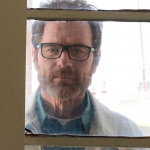Perhaps you have seen or experienced the fights that occur when two people stop actively loving each other, and instead justify themselves above any other priority. It happens like this. She comments on her day and asks a simple question. He gives a well-intentioned but thoughtlessly hurtful answer. It’s not the first time. She responds in anger. He becomes indignant over her anger. She can’t believe he is indignant. He can’t stand how she ignores his explanations. Neither one can believe they ever married the other. Soon they are in separate bedrooms. Anger fills their hearts, and they do not know their own guilt. Those are not good days.
When they can’t be slowed, controlled, or healed, relationships characterized by this sort of fighting are simply called dysfunctional. The relationship is not doing its job: it is not encouraging the betterment of the participants, it is not moving the unit forward, it is not on a pathway to a better place, and it forces attention inward when it ought to support its members in the outward challenges they face.
It is appropriate, then, that the other place we often use the word dysfunctional is in reference to our government.
Antagonism between the parties is nothing new. George Washington was our first and likely last president for whom the taking of sides was not a necessity. However, it may be difficult to find another period in American history during which the very basics of governance weren’t such a constant strain, where failure loomed so often, and where simple responsibilities were sacrificed so foolishly on the altar of political aggrandizement.
Today we are shut down. Large, valuable portions of the American government are closed for business because we could not agree on a basic spending bill. It is a national embarrassment that begins with leaders who cannot compromise.
To call the political climate dysfunctional is a cliche by this point, but I think it’s an instructive exercise to consider the parallels between our government and an unhealthy relationship.
First, consider how our leaders have exacerbated small problems. They have chosen, time and time again, to take strong stances that matter less than the larger issues of the day. They have held the business of governance hostage so they can argue about positions in areas they know will never be resolved.
Second, our leaders have refused to accept any blame for their part. Far more time is spent attempting to explain why the other side is wrong than is spent actually talking about workable solutions. Each side assumes that the only viable solution is their own, and that the opposition cannot have anything of value to offer.
Third, we have become more focused on petty problems than the larger needs of the country and the world. A government shutdown is an expensive thing, but it does not carry the same weight as questions of extreme poverty, civil war, or repression of minorities. Yet all those problems are happening in our world, and we relegate them to secondary status while we navel gaze a simple spending bill.
Fourth, we have lost the idea of trust in the other. Our extreme inter-connectedness presents us with more options for information and relationship intake than we can possibly pursue. As a result, we tend to pursue those who share views similar to our own. When groups of people self-reinforce their preconceived ideas and have endless support for their view of the world, they close themselves off to new thoughts and wisdom. They become less able to see the truth from any perspective but their own.
Like a husband and wife constantly on the lookout for signs of offense in the other, our leaders have stopped viewing each other as neighbors. Instead, they see each other as enemies to be defeated. This lack of trust invades conversations about legitimate political issues, descriptions of opponents intent, and public discourse on philosophical directions. It is a poison that prevents and restricts the ability to build anew.
I confess that I do not have great hope for our long-term health as a country. Our diversity of opinion and technology’s power to reinforce the borders around individual beliefs and opinions are blocking compromise and the ability to focus on problem solving, which are the traditional solutions to dysfunction. If we cannot easily ride out the small things, we will likely not be prepared to handle the truly great ones.
And yet the hope remains. It is part of the common grace of God that some relationships do come back from dysfunction, do move forward into brighter days. When they do, it is usually because someone decides to act with self-giving love. They decide to forgive. They choose to forbear. They prioritize self-questioning virtue. They display a willingness to grow.
Perhaps you have seen or experienced what happens when two people actively love each other, and seek each other’s good above all else. The relationship is characterized by self-sacrifice and forgiveness. Small annoyances pass without a second thought. Conversations progress toward joy. The participants are refreshed, and prepared, and changed. Love is offered and received. Those are good days.
If those days are our desired goal as citizens, then the great need of our time is to reconsider our own part in creating that kind of a relationship.
photo credit: Phil Roeder via photopin cc











